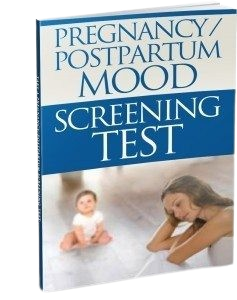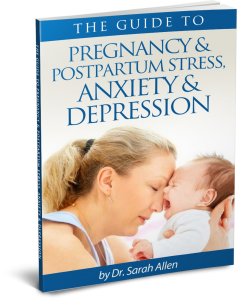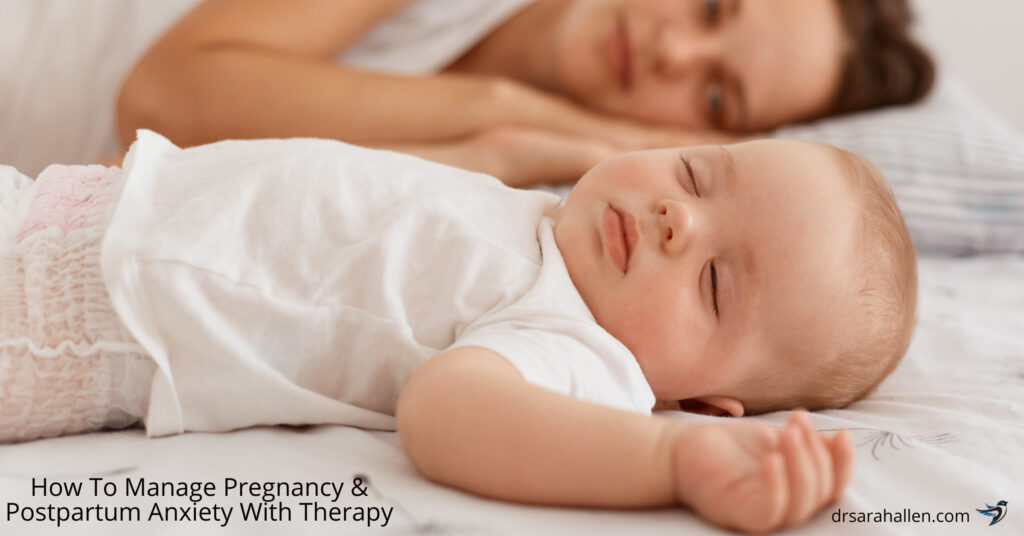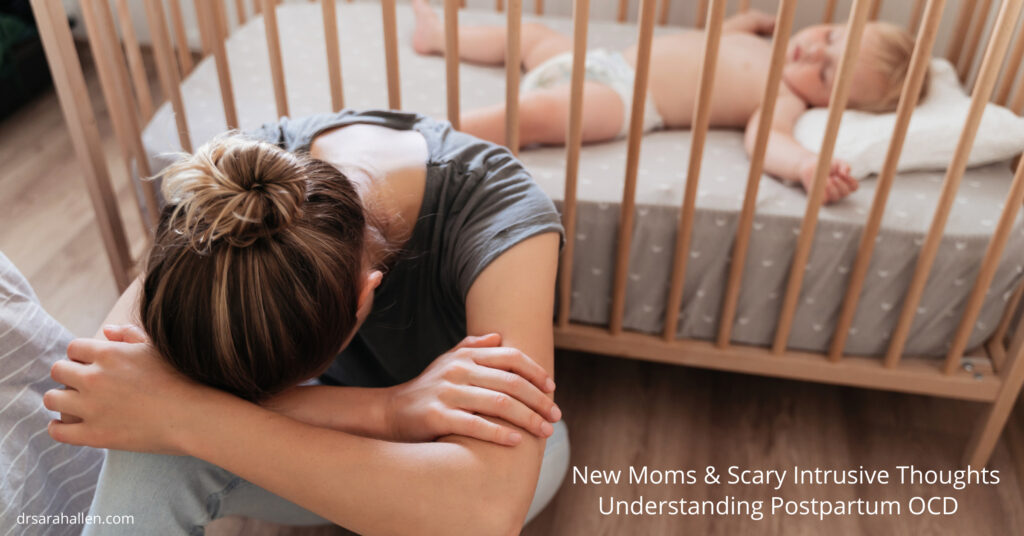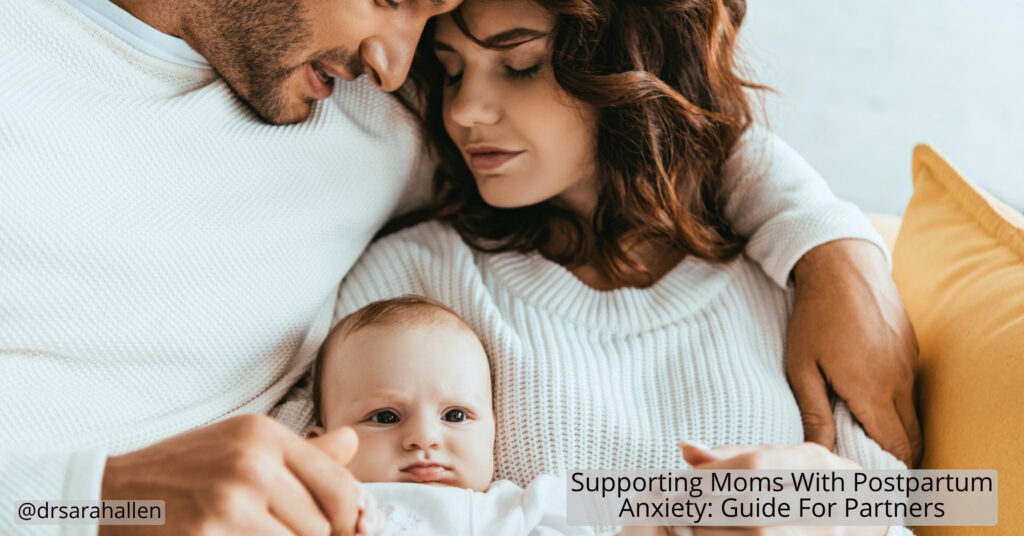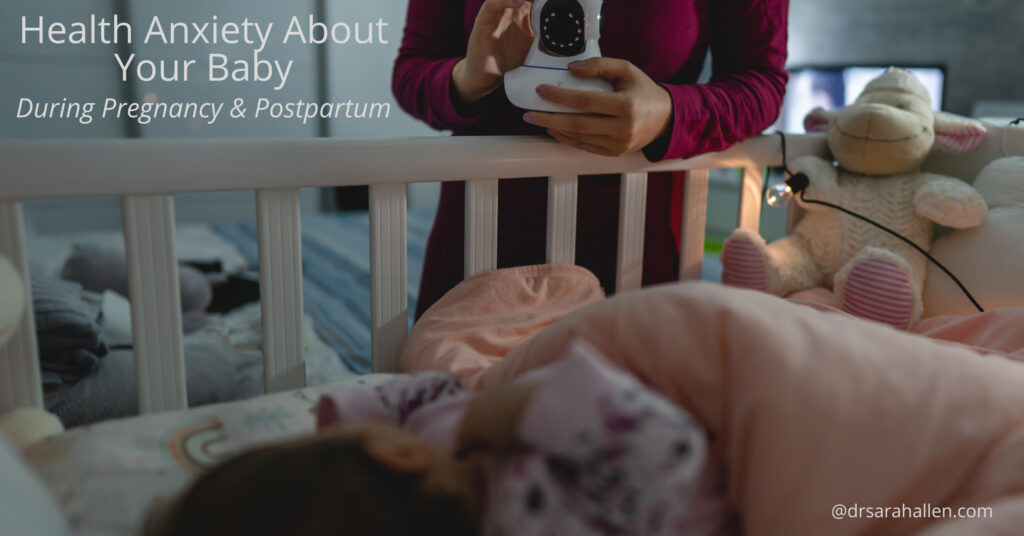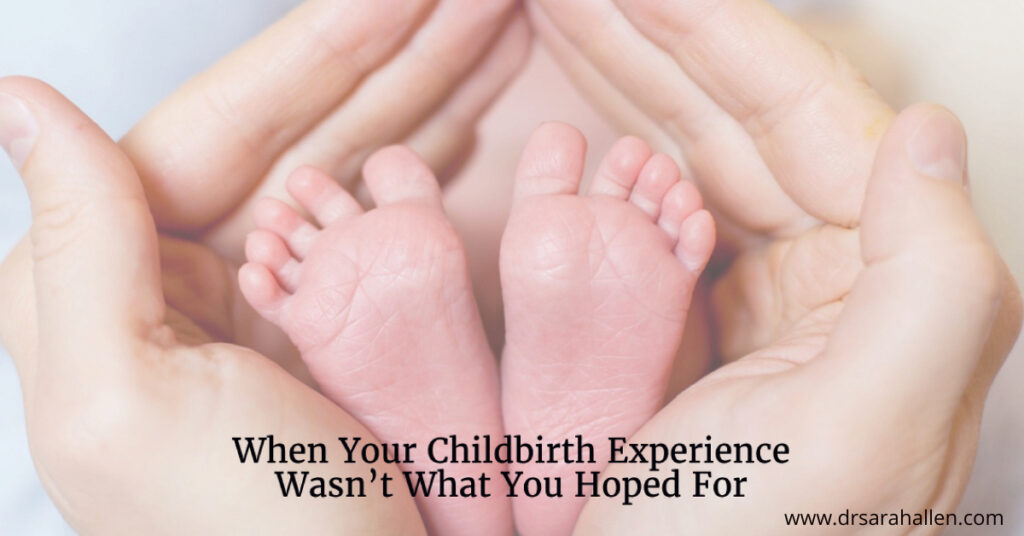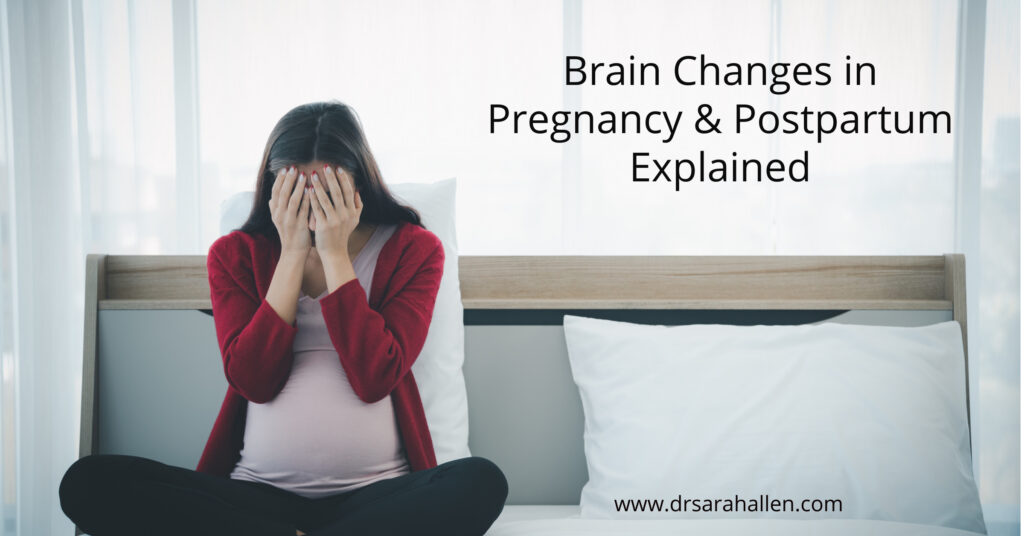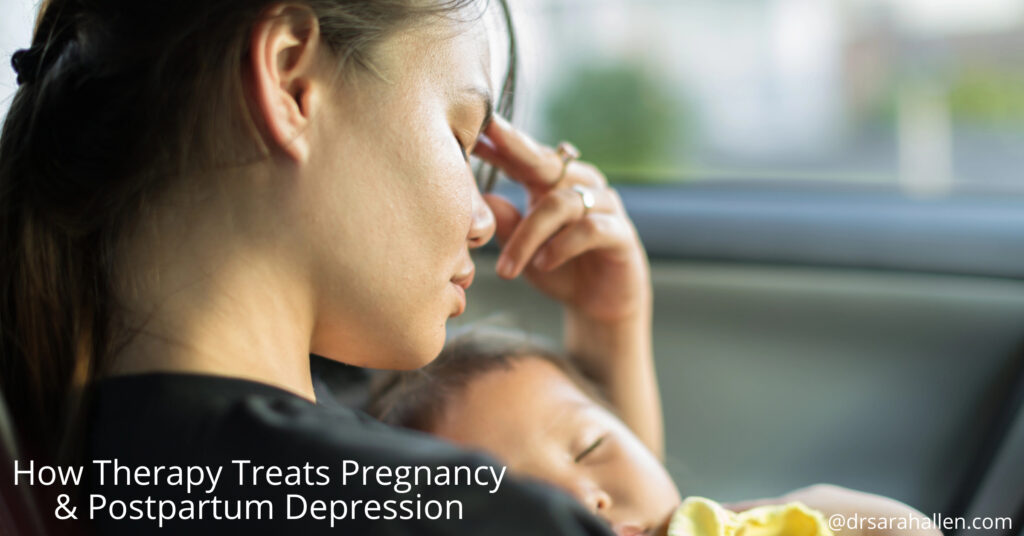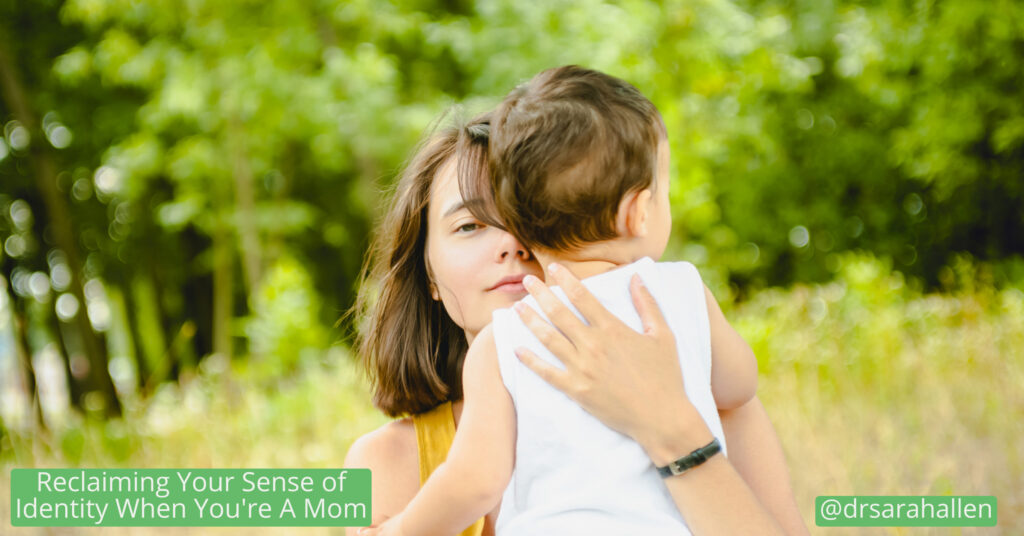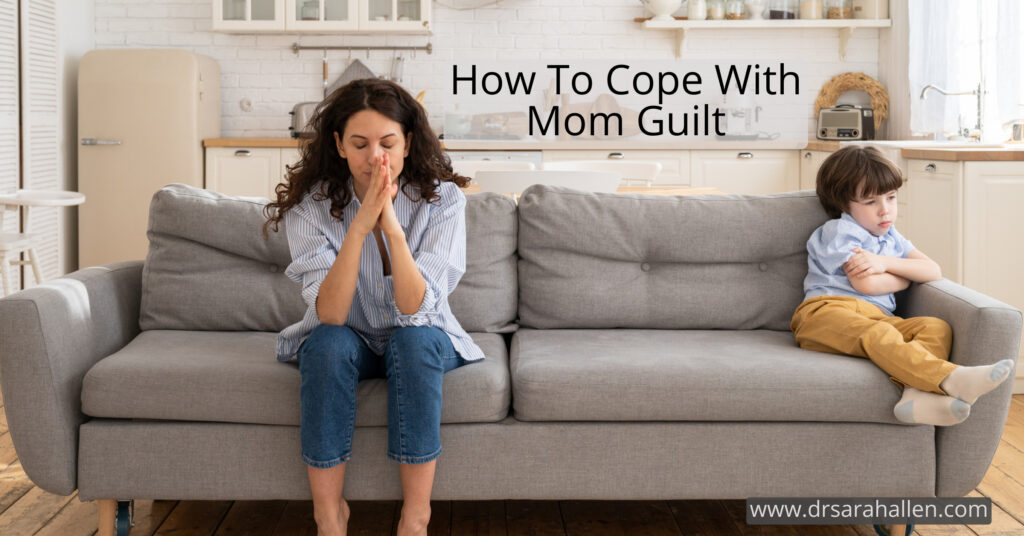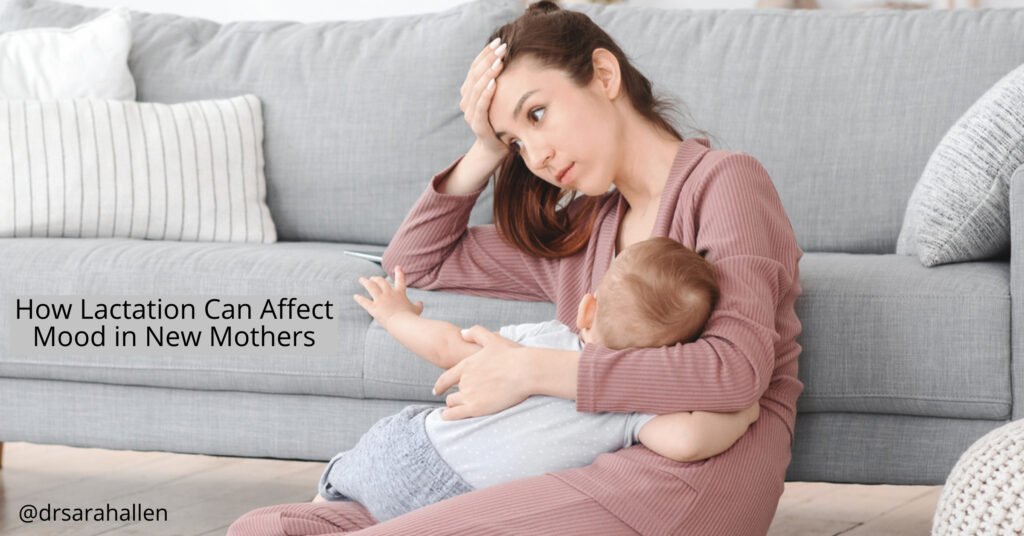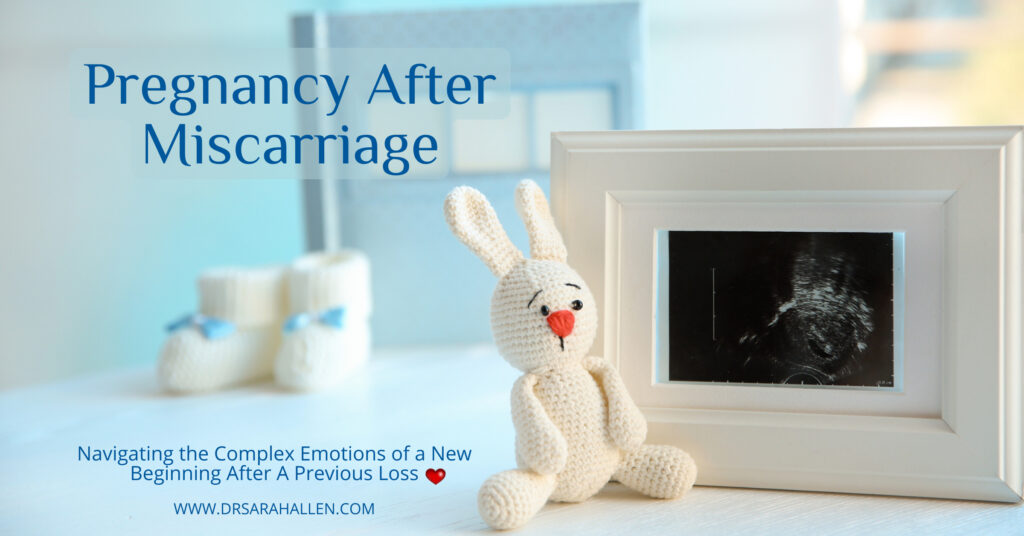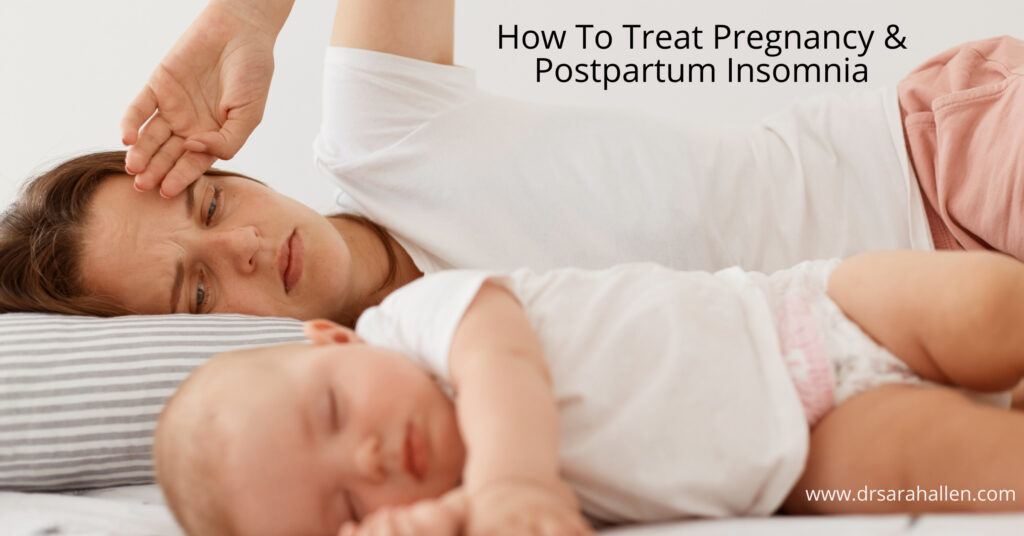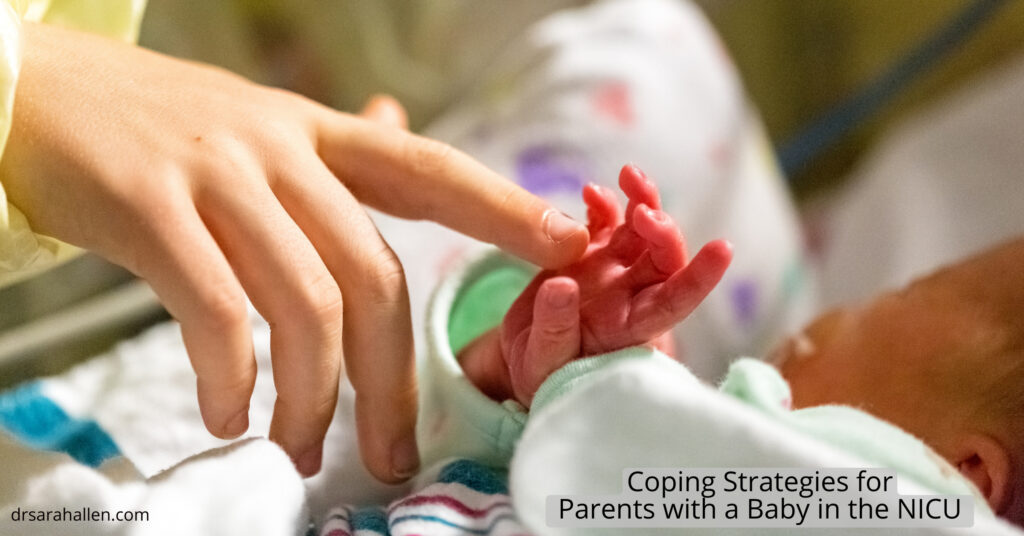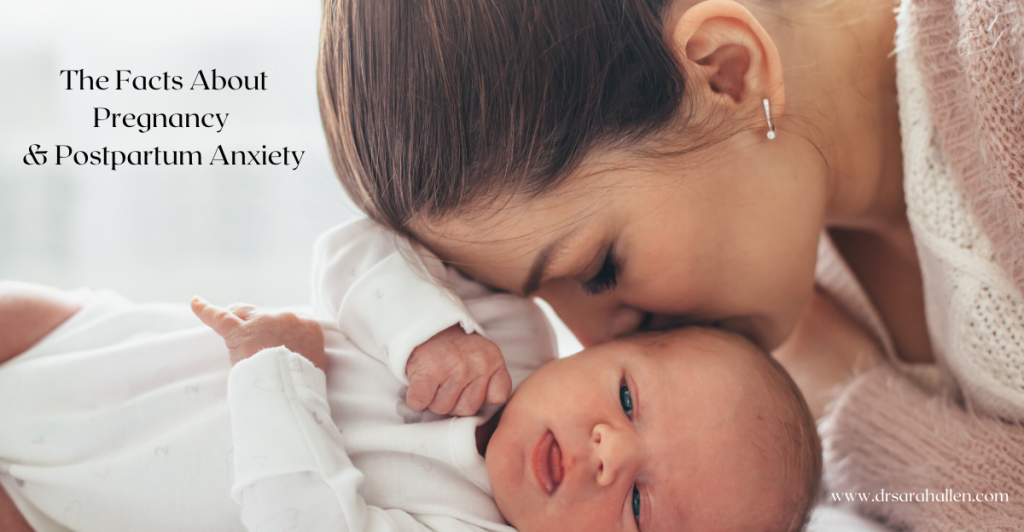
There has been a growing awareness about Postpartum Depression over the past decade and doctors offices now routinely screen moms for it, but I think anxiety, during pregnancy and after having a baby, is nearly as common and just as debilitating. It is time to focus on how many women are affected by anxiety and educate our community so we are all aware of the symptoms and how to access appropriate help.
Approximately 6% of pregnant and 10% of new moms experience anxiety, and remember that statistic comes from the number of women actually reporting it so imagine how many women go through anxiety and don’t mention it to their doctors or reach out for help. You are definitely not alone in going through this and treatment is available and really can help.
What Risk Factors Influence Pregnancy & Postpartum Anxiety?
The short answer is that we know that women with these risk factors are especially susceptible:
- If she has previously experienced anxiety or if there is a family history of a mood disorder, such as depression or anxiety.
- Previous mood reaction to hormonal changes i.e. history of premenstrual dysphoric disorder (PMDD) which is a severe form of PMS, puberty or birth control.
- If she has limited practical and emotional support.
- If there are high levels of life and relationship stress.
- Being divorced, widowed, or separated.
- Economic stress.
- Having experienced traumatic or stressful events in the past, especially a previous pregnancy loss or traumatic childbirth
- Feeling ambivalent about being pregnant.
- If she has a high-risk pregnancy i.e. twins, pregnancy complications etc..
The long answer is – it’s complicated and I don’t think it is just one factor that affects whether you are at risk or not. No doubt biological, psychological and social factors all play a role.
Some experts think mood changes, such as anxiety and depression, are due to the rapid hormonal changes, especially during the first and third trimesters. The amount of estrogen and progesterone in the blood increases in order to prepares a woman’s body for pregnancy then rapidly decreases after childbirth. These significant changes to hormone levels can affect the level of neurotransmitters, which are brain chemicals that regulate mood.
Estrogen levels soar during pregnancy, increasing by more than 100 times their normal levels. There is a link between estrogen and serotonin (the “happy” brain chemical) but it isn’t a case of more estrogen = more happiness because although we don’t fully understand how they interact with each other, we do know that changes, fluctuations and imbalances in serotonin can cause emotional dysregulation and mood swings. Anxiety and irritability, are especially associated with estrogen changes.
Progesterone levels also affect mood and help relaxation, which sounds great. Unfortunately, increased and fluctuating levels of progesterone during pregnancy, and the huge drop in levels postpartum, can cause fatigue, sadness and feelings of hopelessness for some women. No wonder new moms are at risk for mood swings!
But while hormones seem to play a role, the exact biological mechanisms and why some women are more sensitive to hormonal fluctuations, are currently not completely understood. I think it is can be a mix of hormonal changes and the amount of stress women are under as well as their prior history of infertility issues, pregnancy loss and trauma, that makes a woman more likely to experience anxiety.
It is important to note though, that just because you recognize that you have one or more of these risk factors, doesn’t mean that you will definitely experience anxiety.
What Are The Different Types of Anxiety?
Pregnancy Anxiety
Pregnancy is a time of tremendous change. The physical symptoms relating to fatigue and morning sickness can really affect how you function but it is the emotional part of not knowing what is normal, or not, as well as the worry about the health of the baby and what is going to happen to your life when you are a parent that typically brings some level of worry, especially if this is your first baby.
Some worry is normal but if you begin to have frequent, severe anxious and very distressing thoughts, then normal worry has moved to a level where it is interfering with your daily functioning and help from a professional could be necessary. The process of trying to get pregnant, fear of miscarriage, especially if there is a previous loss or infertility treatments, can all cause anxiety or exacerbate pre-existing anxiety. A lot of my clients say that they have always been a worrier and others say they weren’t anxious until getting pregnant. Either way, seeking help during pregnancy can really help prevent anxiety from continuing to affect you after you have the baby.
Postpartum Anxiety
When the baby arrives every new parent worries that they don’t really know what they are doing and somehow, inadvertently, they may do something, or not do something, that causes harm to their baby. Are they getting enough milk, sleep, developing okay???
Until a baby arrives, you don’t realize how totally vulnerable a little human is and now you are totally responsible for it! This can be scary sometimes but these worries are totally normal and everyone gets them occasionally.
Postpartum anxiety is different and more intense and persistent than typical new parent concerns. If you have any of the symptoms below for most of the day, you probably have postpartum anxiety. If they persist for more than a couple of weeks after the birth (the baby blues effect 80% of women but within 2 weeks mood swings typically calm down) or come on anytime in the first year and last more than two weeks, then it is important to seek support.
Symptoms of Pregnancy & Postpartum Anxiety
Racing thoughts – they go round and round in your brain with no off switch.
Worrying – it’s constant, you know the concerns are excessive but that doesn’t stop the worries and when you stop worrying about one thing, your mind jumps to another. Worries often surround the well-being of the baby or your other children, partner and yourself. Women worry they are going crazy and have a feeling of dread in the pit of their stomach.
Lack of concentration – your focus flits from one thing to another and memory is poor.
Restlessness – you are exhausted but so agitated you can’t settle or relax.
Sleep disturbance – you can’t sleep even if the baby is sleeping and when you drop off you don’t wake up energized.
Irritability – you may be able to hide it from friends, your partner will probably be getting the brunt of it.
Physical tension – your muscles are balls of tension, possibly leading to neck, shoulder and backaches.
No appetite – women want to lose the baby pounds but this isn’t the way to do it. Even though you know you should be keeping hydrated and your energy up, you have no appetite for food and may feel nauseous a lot of the time.
There are subsets of anxiety symptoms that are important to differentiate.
Panic Attacks
Panic attacks are like anxiety multiplied by 10. They have a sudden onset and are accompanied by intense fear of something bad happening.
Physical symptoms include shortness of breath, chest pain, dizziness, heart palpitations (people often think they are going to have a heart attack), sweating and gastrointestinal upset.
Emotionally you may feel that you are going to somehow lose control, go crazy and may start to avoid situations where you have experienced panic attacks for fear of one happening again.
Panic attacks seem to go in waves, but it is important to know that they will pass and will not hurt you and there are techniques to calm your mind and body down.
The Difference Between Postpartum OCD & Psychosis
OCD is the short name for obsessive compulsive disorder. Obsessions are unwanted thoughts that pop into your head totally uninvited and during pregnancy or after childbirth these thoughts typically revolve around some harm coming to the baby. The thoughts, images or visions can be really horrific and seem very real. Women tend to not tell anyone they have these thoughts for fear of what others may think of them. When we keep thoughts in our head though, they grow more severe and even more frequent.
A lot of time (but not always) the thoughts are accompanied with a compulsion (an overwhelming belief that you MUST do a certain behavior or think certain thoughts in the belief that this will stop the bad thing from actually happening).
Women worry that having these types of thoughts means they are going crazy. When stories get in to the news about postpartum women it is usually because the woman has postpartum psychosis and has done something horrific like harm her baby or driven off a bridge. Those stories are so horrible that the news media jump all over them but only 0.1% of new moms experience postpartum psychosis ( termed PPP). IT IS RARE! Furthermore, only about 4% of this 0.1% harm actually harm themselves or their baby so the likelihood that you are having a psychotic episode (i.e. are not in touch with reality) and will actually cause harm is EXTREMELY RARE but it makes headlines.
About 3 -5% of women experience postpartum OCD so although it is not talked about as much as postpartum depression, it is pretty common and the most important thing to remember is that if you know these thoughts would be a bad thing to do, you are experiencing OCD, not psychosis.
The main symptoms of PPP include delusions or strange beliefs, hallucinations (seeing or hearing things that aren’t there), feeling very irritated & hyper, decreased need for or inability to sleep, paranoia and suspiciousness and rapid mood swings. In a psychotic state, a woman’s delusions and beliefs make total sense to her (but would be irrational to others) and feel very meaningful. Risk factors for PPP are a family history or previous personal history of psychosis or bipolar. Treatment needs to be immediate and requires hospitalization. You see, it is very different from having anxiety-provoking horrible thoughts and still being in touch with reality.
PTSD After Childbirth
Postpartum post-traumatic stress disorder (PTSD) following a difficult childbirth is more common than you think. It is triggered by a real or perceived trauma during delivery and can effect up to 6% of mothers. The traumatic experiences usually leave a women feeling that either her life or the life of her baby is at risk during the labor or shortly thereafter.
Symptoms of fully fledged postpartum PTSD might include intrusive re-experiencing of a past traumatic event (which in this case may have been the childbirth itself, shortly after or events leading up to going to the hospital), flashbacks or nightmares, avoidance of stimuli associated with the event, persistent increased arousal (irritability, difficulty sleeping, hyper-vigilance, exaggerated startle response), anxiety and panic attacks, and feeling a sense detachment.
What I often see in my practice is that women who have had a difficult labor don’t necessarily have the flashbacks and nightmares but they are left with persistent anxiety and hypervigilance about potential harmful things happening in the future or guilt and regret about how labor turned out. If you have had a traumatic labor and would like to read more about this topic, please read my article When Your Childbirth Wasn’t What You Hoped For towards the bottom of this page.
After reading this article do any of these feelings seem familiar? What I really want you to take away from reading this is that pregnancy and postpartum anxiety is much more common that you think it is. Many of the women you know have probably experienced the same thing but just don’t talk about it and struggle on.
Anxiety is very treatable though. You don’t need to struggle by yourself. In particular, I find that cognitive therapy (also known as CBT) is the most effective way to get on top of anxiety.
Cognitive therapy is a problem-solving type of therapy and helps you learn ways to calm yourself down when you are feeling anxious, as well as develop new coping strategies to deal with the stress in your life and to increase your self-care and confidence in being a mother. Although we may talk about the past a little bit to understand who you are today, our focus will be on the “here and now” and how to cope right now as well as learn strategies that will continue to help you in the future.
This type of therapy teaches you to identify the thoughts you have that are unhelpful and cause you to feel more anxious. You will learn ways to challenge and diffuse these negative thoughts and start to think about things in a different, more helpful way. There are also specific strategies for the different types of anxiety: general anxiety, panic attacks, OCD and trauma from pregnancy loss or difficult childbirth.
My professional license only allows me to work with clients who live in Illinois or Florida. If you are not able to work with me, it is important to find a therapist who has specialist training in both CBT and pregnancy and postpartum mood disorders. You will also want your therapist to have had many years of experience working with pregnant and new moms post training . Also, I think it is really important to find a therapist who makes you feel heard and is easy to talk to, because therapy is a collaboration between you (you know your self better than anyone!) and your therapist who know many strategies and copings techniques.

Dr. Sarah Allen has 25+ years of experience in private practice helping women to transition to being the mom they want to be. She is the Founding Director of the statewide non-profit Postpartum Depression Alliance of IL. She also specializes in pregnancy loss & infertility & has published research on postpartum depression and traumatic childbirth.
If you would like to work with Sarah, please phone her at 847 791-7722 or on the form below.
If you would like to read more about me and my areas of specialty, please visit Dr. Sarah Allen Bio. Dr. Allen’s professional license only allows her to work with clients who live in IL & FL & the UK and unfortunately does not allow her to give personalized advice via email to people who are not her clients.
Dr. Allen sees clients in person in her Northbrook, IL office or remotely via video or phone.

What Can I Read That Helps Me While I Am Waiting For My First Appointment With Sarah?
If you feel that you may be experiencing pregnancy or postpartum mood disorder, or worry that you may be at risk of developing it, please download my free booklets below.
See each specific webpage to download one or many.
